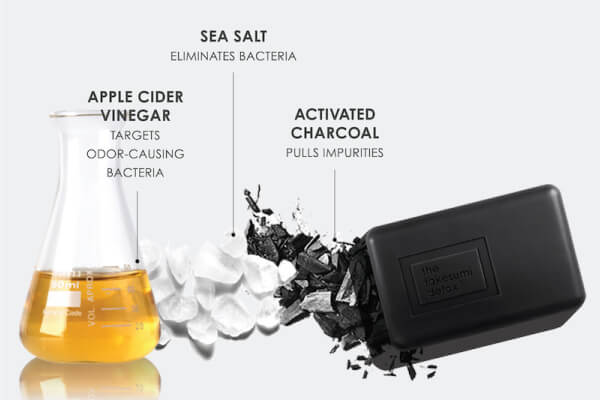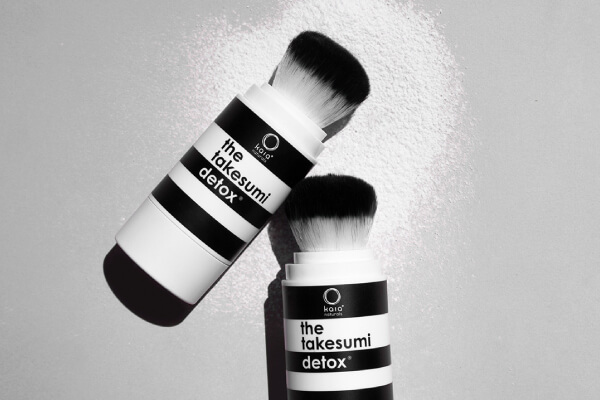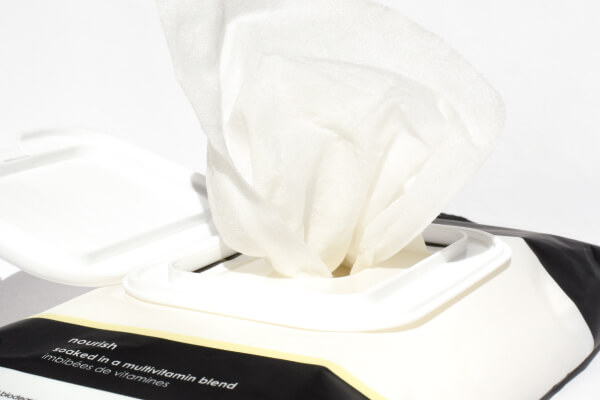
WHY NERVOUS SWEAT MAKES YOU SMELL WORSE
Ever notice your armpits are extra smelly when you’re stressed out more than usual? Nervous sweat (a.k.a. stress sweat) is something that I have experienced firsthand. I was so stressed and nervous before doing one of the biggest presentations of my professional life; presenting to a group of over 200 investors, and Sephora merchants, in San Francisco for the Sephora Accelerate program. Ironically, the presentation was about my company kaia naturals! I must have washed my underarms with my underarm bar and reapplied my deodorant about 100 times. I was terrified I was going to stink after walking off stage because of how nervous I was.
Nervous sweating is no joke as it can make you smell so much worse! Here is the why, and more importantly, how to manage that nervous sweat so you don’t stink throughout the day.

WHY DO YOU SMELL WORSE WHEN YOU’RE STRESSED OR NERVOUS?
When you’re stressed or nervous about something, your brain signals your body’s nervous system, known as the ‘fight-or-flight’ center. Adrenaline and cortisol (a steroid hormone that helps the body respond to stress) is released into your bloodstream, which then activates the apocrine glands to start sweating. Odor-causing bacteria thrives on the fatty type of sweat produced from the apocrine glands, which creates a very unpleasant odor.

NERVOUS SWEAT VS NORMAL SWEAT

APOCRINE SWEAT GLANDS
These are found mostly in your underarms and genital area and open into the hair follicle. These glands become activated immediately to psychological stress or to an “event”. It produces a thick fatty sweat that is full of proteins and lipids.
Bacteria loves this type of fatty sweat and thrives when there are proteins and lipids. When bacteria mixes with this type of fatty sweat, it creates a very pungent odor. This is why you are told that nervous sweat is the worst for many reasons, but the main reason is because it SMELLS the worst. The unfortunate part of a nervous situation is that it creates odor, which can also add more stress. It can feel like a lose-lose situation!

ECCRINE SWEAT GLANDS
These are found all over your body. These glands become activated through exercise or exposure to heat. It produces the watery sweat to help cool your body down. As this type of sweat is mostly composed of water, it tends to be odorless. That is why even if you leave the gym drenched in sweat, you won’t smell as bad.
@madamesweat #stresssweat can be challenging. Here are some tips to help you out. #odor #naturaldeodorant #sweat #sweaty #beyonce #breakmysoul
♬ BREAK MY SOUL - Beyoncé
TIPS TO PREVENT NERVOUS SWEAT & ODOR BREAKTHROUGH
Going through nervous or stressful situations is inevitable. That’s why I’ve gathered some tips that will help you stay odor-free, even through the most stressful situations!
1. USE A NATURAL ANTI-BACTERIAL SOAP
The underarm bar I created contains anti-bacterial ingredients like apple cider vinegar which creates a barrier on the surface of your skin before you apply the deodorant. This leaves a residue on your armpit that will help keep it bacteria free before you apply your deodorant.
2. USE A SWEAT POWDER
Since the excess sweat production is the root cause of nervous sweat odor, using a powder over your deodorant to help absorb that moisture can make a massive difference in managing that nervous sweat odor.
the sweat powder (the one I developed) has apple cider vinegar to combat odor while rice starch, magnesium carbonate and zinc oxide absorb sweat. It is also housed in a portable brush applicator so you can reapply on the go.
3. WEAR NATURAL FABRICS
This is very important as rayon/polyester will smell like crazy as it loves to hold odor. Your best option is to wear cotton or bamboo under your clothes to help absorb excess moisture. Read more about fabrics and odor here.
4. WIPE OFF THE SWEAT & REAPPLY DEODORANT + POWDER
If you find that you’re getting really sweaty during the day bring cleansing cloths and a mini deodorant with you. You can use cloths like the vitamin cleanse cloths I created to wipe off the sweat. The vitamin cleanse cloths are made with jojoba oil and organic honey which will nourish the skin while preventing the sweat from drying your skin out. Then reapply deodorant and a layer of the sweat powder.

5. PRACTICE DEEP BREATHING AND MEDITATION
Mediating and deep breathing exercises before a stressful situation can help relax your blood vessels and lower blood pressure.
6. STAY HYDRATED
If you’re dehydrated your body will produce more sweat to help regulate your body’s temperature. That’s why it’s important you drink water while being in stressful situations.
7. WATCH WHAT YOU EAT!
Onions, garlic and spices can contribute to odor because they contain volatile organic compounds and sulphur. The pores in your underarms could emit a garlicky scent, so stay away from these type of foods until you are in the clear!
THE TAKEAWAY
Nervous sweating can feel like a losing battle as stressful situations can be made more stressful when you experience odor breakthrough. Implementing these lifestyle tips and incorporating the takesumi detox products (the underarm bar, charcoal deodorant and sweat powder) into your routine will help you manage these situations will less stress and odor.







